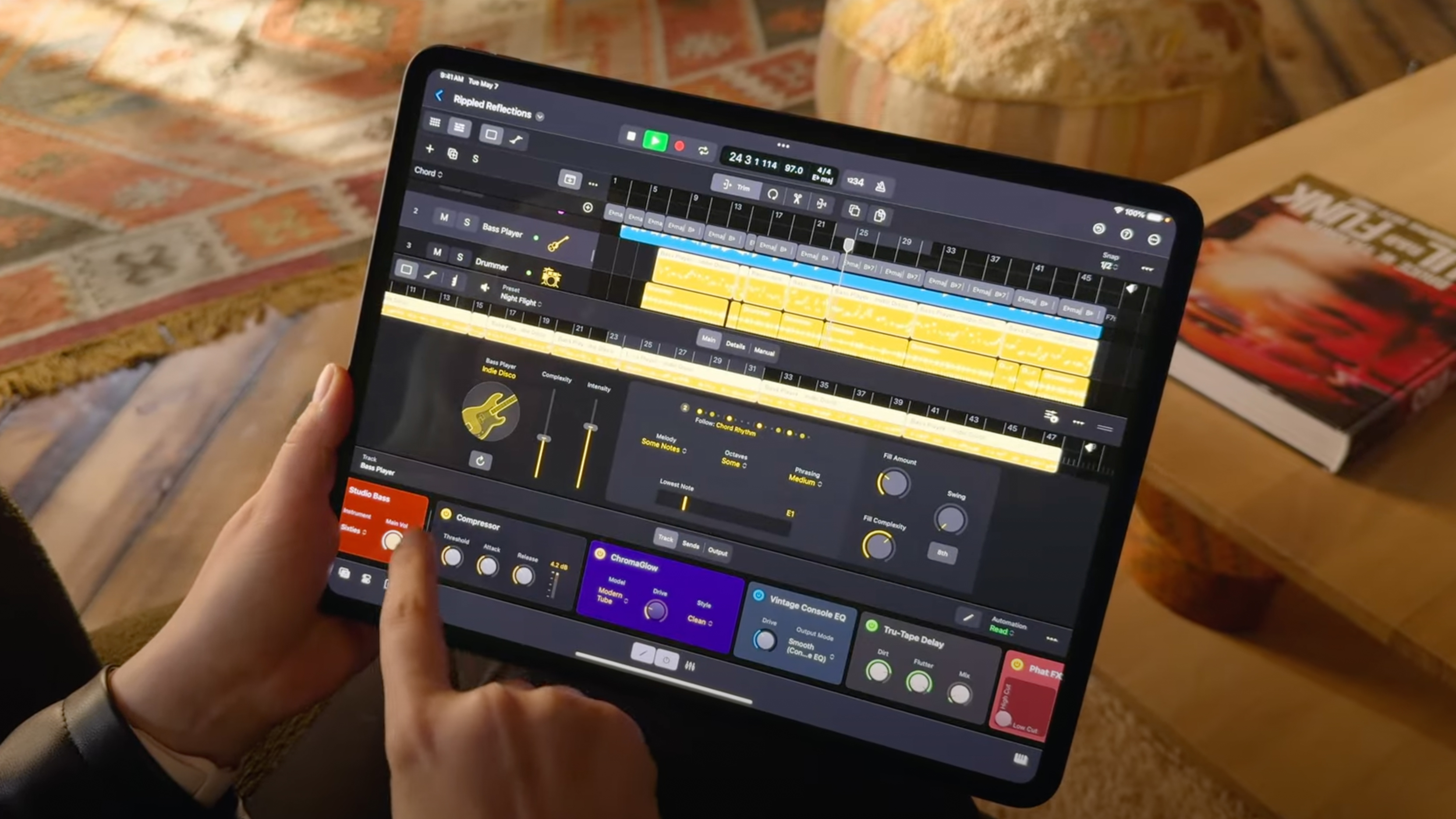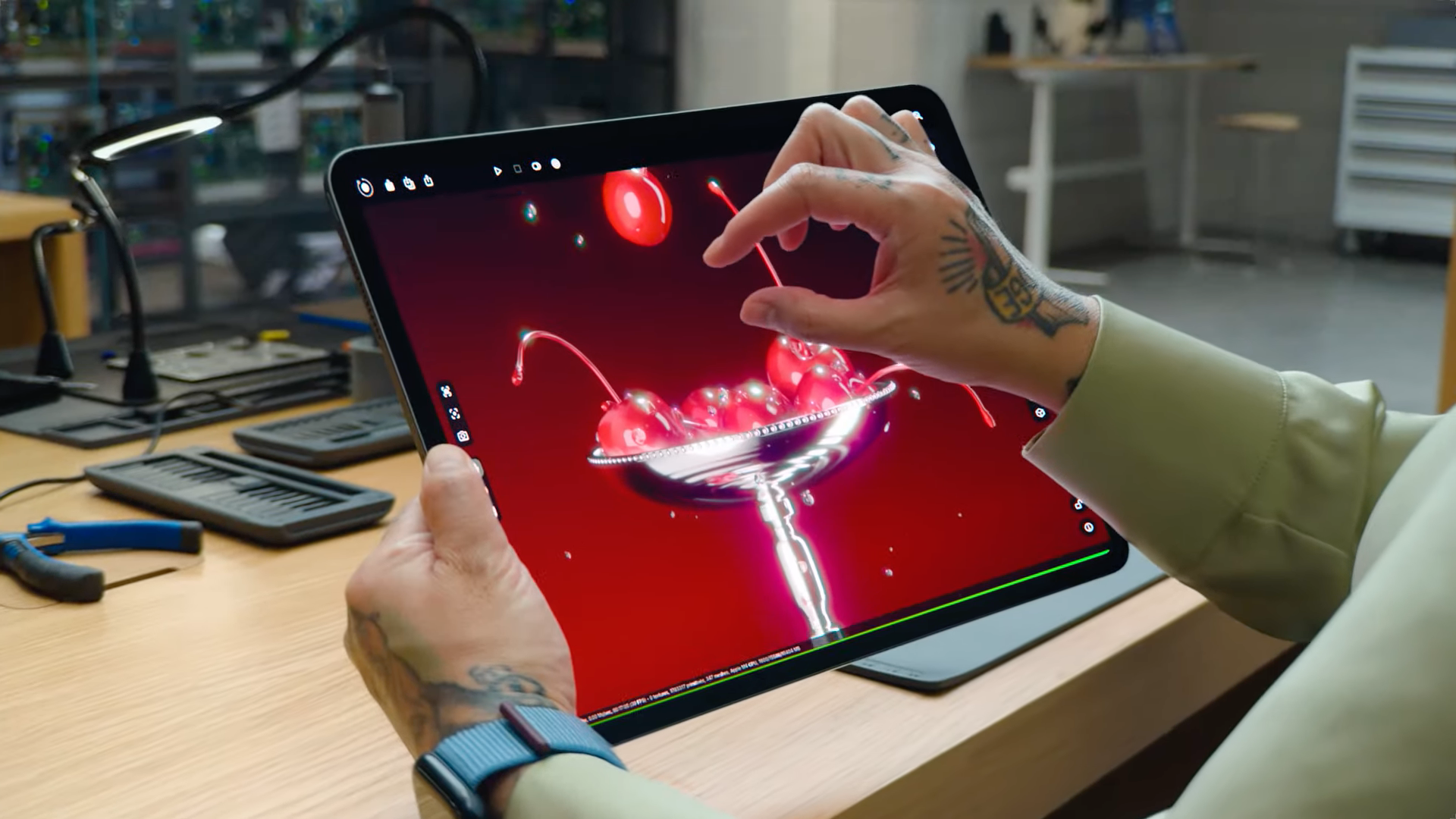
When Apple unveiled the new M4 iPad Pro at its May 7 'Let Loose' event, the company talked up the M4 chip’s artificial intelligence (AI) capabilities, saying it was more powerful than any neural processing unit (NPU) in any AI PC today. Well, the M4’s performance has apparently just leaked in a fresh set of Geekbench benchmarks, and the results are fascinating from an AI perspective.
Compared to the previous-generation M2 iPad Pro, the latest model shows a modest improvement in performance. In Geekbench’s ML 0.6.0 test – which measures machine learning capability – the new iPad Pro scored 9,234. That’s roughly 23% higher than the M2 iPad Pro’s score of 7,511.
According to Tom’s Hardware, the M4 iPad Pro improves on the M3 chip’s ML 0.6.0 performance by roughly 10%. When it comes to measuring operations per second, the M4 clocks in around 5% faster than the M3 in the latest MacBook Pro when the benchmarks are converted and equalized.
The Geekbench results didn’t explicitly say they were for the M4 iPad Pro, but the listed specs seem to suggest this, as the iPad being tested contains a 10-core ARM chip alongside 16GB of memory. Those specs are only available in the iPad Pro with the M4 chip. The device was also listed as running iOS 18 (in reality, it will be iPadOS 18), which isn’t out for any iPad yet, further suggesting that this is an unreleased product - almost certainly the M4 iPad Pro.
What does all this mean for you?

Benchmarks and acronyms can get confusing, especially when you just want to know whether upgrading is worth your time and money. And on the face of it, this modest upgrade in AI performance might not seem like much.
But it’s also worth remembering that Apple’s chips are already among the best on the market when it comes to combining power and efficiency. Apple wouldn’t need to do much to keep that crown, as even an incremental improvement would only further extends its lead over its rivals - although Qualcomm's upcoming Snapdragon X Elite chip could prove a serious threat to Apple's throne.
Apple’s chips already have plenty of power to perform AI operations at a high level, and the company’s devices have been outfitted with AI tools for years (the behind-the-scenes stuff that happens when you take a photo on an iPhone is a good example). What will make a real difference is software – and we’ll find out a lot more about that at Apple’s Worldwide Developers Conference (WWDC) on June 10.
There, Apple is expected to unveil iOS 18, which could potentially be the largest overhaul iOS has ever seen. AI will be a major focus of the event, with machine learning embedded into almost every aspect of Apple’s devices. Those software updates, combined with the M4 chip’s AI smarts, could finally make Apple a true competitor in the world of artificial intelligence.







